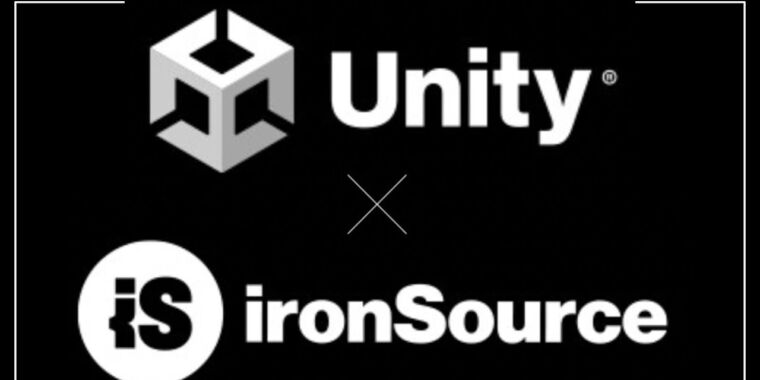- cross-posted to:
- technology@lemmy.world
- cross-posted to:
- technology@lemmy.world
Despite bringing in over $1.8 billion in revenue in the 12 months ending in June 2023, Unity was nearly a billion dollars away from profitability during that same period, thanks in large part to a wave of expensive acquisitions.
🥴 brilliant decision makers at unity
Love how this plays in relation to all the arguments of “well, you have to understand, Unity doesn’t turn a profit yet, they need to be able to make money”, from when they first announced the change.
It’s by design, you don’t need to pay taxes if you don’t generate profit, you can just shovel more value into the company with investments and acquisitions that then hopefully generate you even more money in the future.
And at the same time you can point at that loss and use it as an excellent scapegoat for doing shitty things.I believe they can also load all that debt into these acquisitions before taking what they want and selling the rest off in bankruptcy, no?
Weta was an especially weird and expensive acquisition, since they’re not even in the same field.
Weta is researching and building (amongst other things) graphics processing technologies.
Being able to take cutting edge technologies from the film industry, optimising them and selling them as “click and go” solutions in Unity would be a huge win.
StageCraft is the only thing where there is even a small overlap between game tech and the film industry, and that one is using Unreal Engine. Other than that, the special effects used in movies render at minutes per frame, not frames per second as in games. There’s no technology suitable for Unity in that.
I can think of applications of Weta’s MASSIVE in games.
They do a lot of work on mocap technology, which is used in game dev.
And sure, movies run at minutes per frame, but reusing the knowledge and skills developed during the production of them can be applied to game development. It’s not 1:1, but there’s transferable skills. And there’s always emerging technology. Take Gaussian Splatting, that potentially could take realistic low-fps CGI scenes and make them realtime.
movies run at minutes per frame
That’s usually called a slideshow 😁
They’re talking about the rendering speed, not the playback speed.
Wait, they acquired Weta? I thought it was just cooperation or something like that
Ah, thanks. I completely missed that somehow, although I haven’t really been keeping all that much of an eye on Unity (or the games industry in general, really) in the years since I quit working there
The talk was that Unreal was starting to get used in the entertainment industry for real-time set effects and they had no way to compete in that space.
Well yes, but for that they need to develop a competitor to Nanite, and Weta won’t get them any closer to that.
In the article quoted by Ars (https://mobilegamer.biz/fuck-you-were-not-paying-inside-unitys-runtime-fee-fiasco/)
“I truly don’t think it was done maliciously,” our Unity insider said. “Ultimately Unity has lost a lot of money over the last 18 years – billions of dollars – and they need to do something to make more money. Sadly, it wasn’t delivered well, but the need to make more money is still there.”
Using anti-competitive tatic to try to eliminate a competitor is literally malicious.
Using anti-competitive tatic to try to eliminate a competitor is literally malicious.
To be fair, it sounds less like eliminating, and more like “carving out a niche”, with the competitor being the dominant one. Doesn’t make it great, but at least a bit better ;)
I left Unity behind they they merged with Ironsource. I said it then, that they would become an ad focused company and engine development would be put in the back burner. I’ve watched that statement become the truth.
I left because even before that, they kept over promising features and then depreciating things and leaving users with broken systems that you either had to wrap up in boilerplate code yourself, or pay for an expensive plugin to make work right. When they MERGED (the article says it was an acquisition, but in reality it was a merge. Subtle seeming difference, but an important distinction for me), I saw the writing on the wall that this trend was only going to get worse. And it has.
I left waaaaay back when they decided that everyone had to have their shitty launchers and logins and basically turned into Autodesk.
I deal with one Autodesk at a time. And it’s Autodesk.
I don’t find Unity’s excuses surprising, interesting, or newsworthy.
These aren’t excuses, these are angry employees complaining about the whole situation and shedding some insider light on how it went down.
I mean they had the former CEO of EA at the helm. It was only natural
I was just amazed that it took him so long to roll out a predatory monetization model…
I don’t play AAA games (except BG3 if that has 3 A’s), but my wife plays The Sims, and between some cheap DLCs and mods, it seems like it’s almost free for tons of content?
I mean this guy was the one behind the whole “project $10”
Really same reason all these companies making dramatic changes. Rips the bandaid off and lets them roll back to what they actually wanted while looking like they listen. Some are executed better than others. See Deltas medallion change for another example.
🤖 I’m a bot that provides automatic summaries for articles:
Click here to see the summary
Business-focused site MobileGamer.biz cites multiple “sources from inside Unity and across the mobile games business” in reporting that Unity received some significant pushback from senior-level managers before rolling out its initial fee-restructuring plans.
The final policy knocked that cap down to 2.5 percent only after the extent of the backlash became clear.
While much of the industry furor was focused on the business impact Unity would have on mid-sized indie game publishers, MobileGamer’s reporting suggests Unity’s moves were actually more focused on extracting a larger share of the lucrative mobile ad mediation market.
Unity made a massive investment in that market about a year ago when it acquired IronSource, one of many major tools that mobile game devs use to maximize revenue by managing inventory from multiple ad networks at once.
“AppLovin is dominating, and Unity tried to use this policy as a forcing agent to try and get back some market share,” one source told the site.
Inside Unity, that kind of hardball push for more ad mediation customers may have been seen as necessary to make up for a huge hole in the company’s balance sheet.
Saved 64% of original text.










